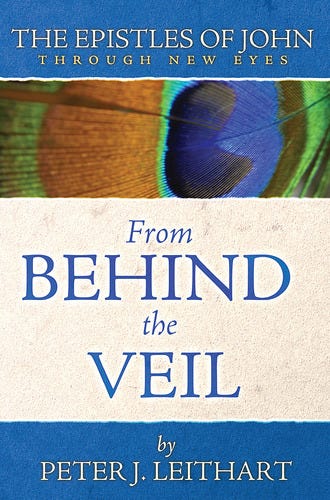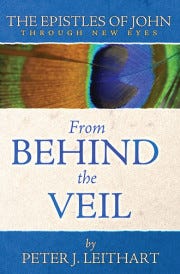Marc Hays: Lust of Flesh and Eyes & Pride of Life


In 2009, Athanasius Press published Peter Leithart’s commentary on 1 John. It is included in their “Through New Eyes” commentary series, and is entitled “From Behind the Veil.” In chapter 5, he elaborates on the lust of the flesh, the lust of the eyes, and the pride of life:
“…John focuses attention on the relationship between the world and “desire.” He enumerates three evil desires, or lusts (epithumia): the lust of the eyes, the lust of the flesh, and the boastful pride of life.
The desires John lists are, first of all, variations on the desires evoked by the tree of knowledge. Eve saw that the tree was good for food, a delight to the eyes, and desirable for wisdom (Gen. 3:6); she was gripped by the lust of the flesh, the lust of the eyes, and the boastful pride of life. Adam and Eve took the fruit of the tree of knowledge prematurely, but the things they desired from the tree were truly desirable, and God planned eventually to fulfill the desires of Eve’s heart.
In the Old Covenant, Yahweh offered Israel the tree of knowledge in the form of three gifts, and then stored them away in the temple, hidden in the Most Holy Place, until the fullness of time, until Israel became mature enough to receive her inheritance. These are the three gifts in the Ark: a jar of manna, the gift of food and life; the tablets of the law, written with the finger of God, the gift of instruction and wisdom; and the rod of Aaron that had budded with almond blossoms, the gift of authority, the gift of glory. Israel had these gifts in part: they had life in the presence of Yahweh, they had the wisdom of God in Torah, they had a share in the glory of God. But for Israel the fulness of these gifts lay in the future, and the life of each Israelite, and the life of Israel as a nation, was to be directed by the desire for these three gifts, by the anticipation that someday the veil would be rent and the gifts would be opened and distributed freely. Yahweh promised that when he came forth from his tent, he would bring these gifts with him.
That is the gospel, which is, once again, the gospel of the rent veil. In the fulness of time, God sent these gifts not in part but in full. God sent Torah in the flesh, his Eternal Word and Wisdom; the Father sent bread from heaven, the One who is the way, the truth and the life; he exalted humanity to heavenly places to share in his authority to judge. By his death and resurrection, Jesus tore down the veil where the gifts of God had been hidden away. By his death and resurrection, Jesus made these gifts available to anyone who trusts in him. Jesus is the life of God; Jesus is the wisdom of God; Jesus is the glory of the Father, the exact representation and image of his Father. In Jesus we have life and wisdom and royal glory. In Jesus, who is the ark of God, the gifts of God are freely offered to those who are united to Jesus and follow him. He is the tree of knowledge as he is the tree of life. Under the Old Covenant these gifts were holy, taboo, unapproachable. But no longer; now, it’s holy things for holy people.”
Good gifts to be thankful for as we enter into worship tomorrow morning, as we proclaim the Preface and Sanctus together with our kin in Christ atop His holy mountain.
<>siteрегистрация а в каталоге яндекс
The post Marc Hays: Lust of Flesh and Eyes & Pride of Life appeared first on Kuyperian Commentary.

